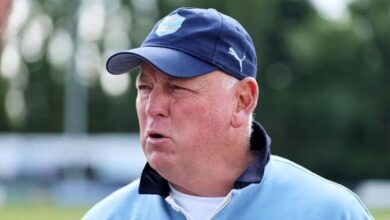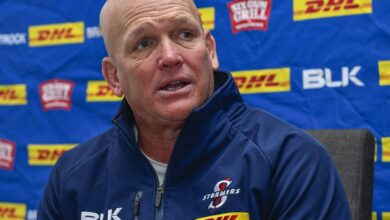Rassie denies Springboks used ‘illegal’ subs strategy

The Springboks have emphatically refuted any suggestion that they may have used Head Injury Assessment (HIA) protocols to rest players.
After securing a stunning victory over France on Sunday, the Springboks are just a few days away from the Rugby World Cup semifinals.

Pieter-Steph du Toit, Duane Vermeulen, and Bongi Mbonambi all left the field for HIAs at various points in the second half, but ultimately all passed the rigorous testing.
THE SPRINGBOKS HAVE RESPONDED TO ANY DOUBTS
Some critics theorized that the HIAs may have been used to rotate and rest players, but Rassie Erasmus, director of rugby for the Bok, was having none of it.
“No I think that would be totally wrong. No,” Erasmus stated. “We really care about our players, and rightly so. I think it was (William) Servat, the French forwards coach, who said he hoped the medical team and the HIA people are ready, because there’s going to be a lot of bumps and bruises,” he recalled
“You could see that we had to do an HIA there when Pieter Steph made head contact. The match-day physician may have actually called Duane Vermeulen after the straight head-to-head bout.
“Bongi received a severe blow to the head. And yes, fortunately for us, all of those players passed their HIAs, allowing us to remove them from the team. You know, there is always a chance that they won’t.
“I don’t believe there is anything else to talk about regarding it.
”CHECK OUT THE RUGBY WORLD CUP FIXTURES BELOW:

READ ALSO:
‘There’s going to be beef’: Pollard expects England to be ‘ruthless’ against Springboks
In the Saturday World Cup semi-final, Handré Pollard anticipates England to play at a “whole new level” of ferocity and aggression, but the South African fly-half is adamant that the defending champions are prepared for it.
Pollard led the Springboks to victory in the 2019 final with a 32-12 victory by kicking 22 points, and he still recalls the disappointment written on the faces of the defeated finalists that day.
“You could see the disappointment on their faces four years ago, and I’ve been a part of a squad that fell out in a World Cup semi-final [in 2015], and it sits with you for the rest of your life,” he remarked. “There are many things you reflect back on and wish you had done differently, and I’m sure they’ll approach this weekend with that perspective.
They will be brutal, and I believe they will up their level of aggressiveness and intensity. Nevertheless, despite that, we are ready for it and even love it. We always enjoy that aspect of the game, and if there is going to be beef, there will be steak. We simply need to get out there and play the game because it’s Test rugby and it lasts for 80 minutes.
South Africa, which won the championship in 1995, 2007, and 2019, is aiming to advance to its fourth World Cup final. Pollard thinks that the hardship some players experience as children may be a contributing factor in the Springboks’ exceptional capacity to perform when it counts. It’s just how we’re raised, he explained.
“We enjoy it. Many of the members of our squad had difficult childhoods, so we often remind ourselves that although there should be a lot of pressure on us now that we are in this position and at this point, it is more of a privilege to be a part of these events.
“I believe that our game concept and style of play work well for World Cups. Our comfort level in this setting is high. We all just really appreciate the pressure as a group. We frequently state that it is a privilege to be under such pressure while representing our nation.
South Africa defeated the host France 29-28 on Sunday to advance to the semifinals. Cheslin Kolbe successfully charged down a Thomas Ramos conversion in that thrilling quarterfinal, and Damian Willemse signaled for a scrum after scoring from inside his own 22.
The Springboks garnered notice earlier in the competition for their daring decision to start seven forwards and one back during their Pool B loss to Ireland. According to Pollard, the players enthusiastically accept the novel strategies developed by head coach Jacques Nienaber and director of rugby Rassie Erasmus.
Nothing they do is random; it is all carefully considered and preplanned, he claimed. “We trust them because they have earned it through the years via their actions and preparation.
Therefore, there are no questions raised when they develop these concepts. They explain to us the rationale behind our actions, and we simply accept it, believing that both the players and the coaches can be trusted.




